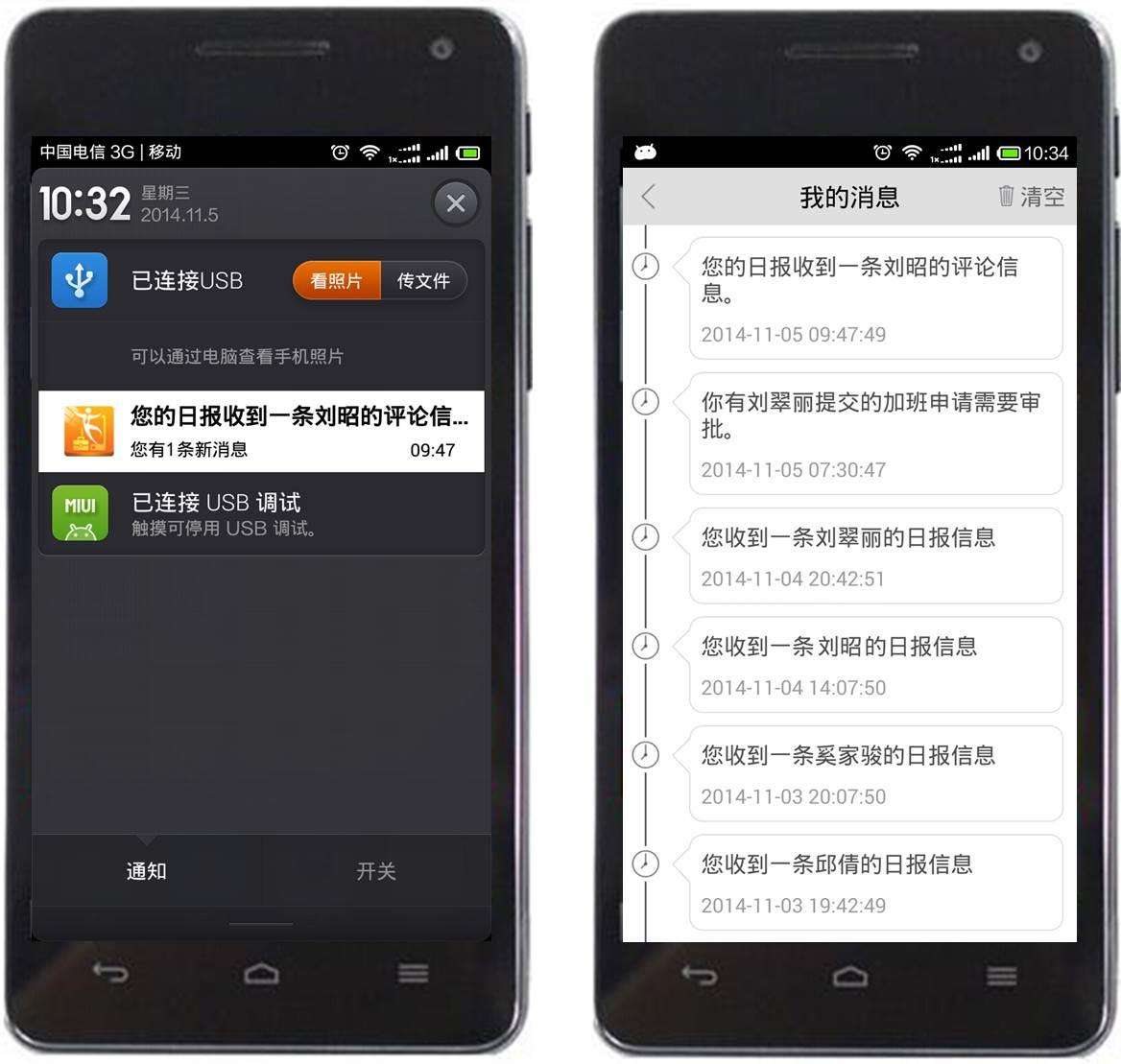Message Push
app通常会接受各种各样的信息,app可以将广告、客户订阅的信息、分门别类的推送给手机端。这也是手持设备特有的互动性消息机制。我们通常借助第三方组件来完成消息推送。
推送插件jpush-react-native#

消息推送示例
消息推送样例
React Native的极光推送插件, react-native版本需要0.17.0及以上
如何安装#
首先安装npm包#
npm install react-native-jpush --savelink#
rnpm link react-native-jpushNote:#
rnpm requires node version 4.1 or higher
Android SDK Build-tools 23.0.2 or higher
iOS工程配置#
a.在工程target的Build Phases->Link Binary with Libraries中加入libz.tbd、CoreTelephony.framework、Security.framework
b.在你的工程中创建一个新的Property List文件,并将其命名为PushConfig.plist,文件所含字段如下:
CHANNEL
指明应用程序包的下载渠道,为方便分渠道统计,具体值由你自行定义,如:App Store。
APP_KEY
与JPush上申请的 AppKey 一致。
APS_FOR_PRODUCTION
0 (默认值)表示采用的是开发证书,1 表示采用生产证书发布应用。
注:此字段的值要与Build Settings的Code Signing配置的证书环境一致。c.在AppDelegate.m中加入
#import "RCTJPush.h"
- (BOOL)application:(UIApplication *)application didFinishLaunchingWithOptions:(NSDictionary *)launchOptions
{
...
[RCTJPush application:application didFinishLaunchingWithOptions:launchOptions];
...
}
- (void)application:(UIApplication *)application didRegisterForRemoteNotificationsWithDeviceToken:(NSData *)deviceToken
{
[RCTJPush application:application didRegisterForRemoteNotificationsWithDeviceToken:deviceToken];
}
- (void)application:(UIApplication *)application didReceiveRemoteNotification:(NSDictionary *)notification
{
[RCTJPush application:application didReceiveRemoteNotification:notification];
}
- (void)application:(UIApplication *)application didReceiveRemoteNotification:(NSDictionary *)notification fetchCompletionHandler:(void (^)(UIBackgroundFetchResult))completionHandler {
[RCTJPush application:application didReceiveRemoteNotification:notification];
completionHandler(UIBackgroundFetchResultNewData);
}Android配置#
在android/app/build.gradle里,defaultConfig栏目下添加如下代码:
manifestPlaceholders = [
JPush_APPID: "JPush的APPID", //在此修改JPush的APPID
APP_CHANNEL: "应用渠道号" //应用渠道号
]如何使用#
引入包#
import JPush , {JpushEventReceiveMessage, JpushEventOpenMessage} from 'react-native-jpush'在你的根Component中加入下面代码
componentDidMount() {
JPush.requestPermissions()
this.pushlisteners = [
JPush.addEventListener(JpushEventReceiveMessage, this.onReceiveMessage.bind(this)),
JPush.addEventListener(JpushEventOpenMessage, this.onOpenMessage.bind(this)),
]
}
componentWillUnmount() {
this.pushlisteners.forEach(listener=> {
JPush.removeEventListener(listener);
});
}
onReceiveMessage(message) {
}
onOpenMessage(message) {
}